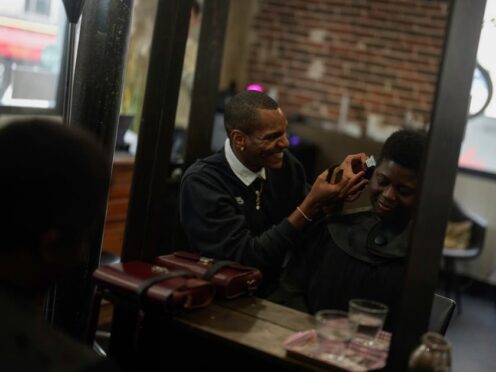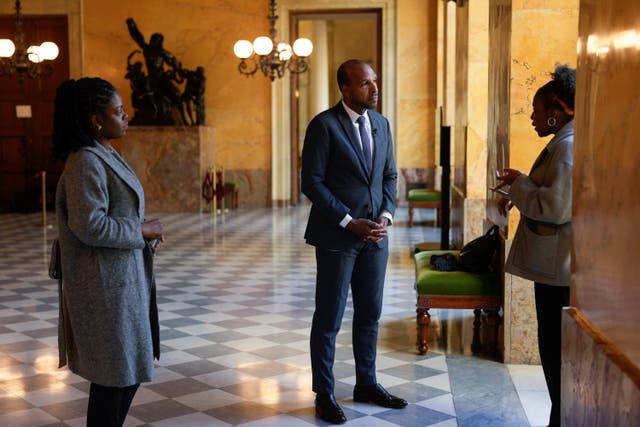
Lawmakers in France’s lower house of parliament on Thursday approved a bill that would ban discrimination over the texture, length, colour or style of someone’s hair.
The bill’s authors hope the ground-breaking bill sends a message of support to black people and others who have faced hostility in the workplace and beyond because of their hair.
But the measure still faces a long road ahead. It goes to the Senate next, where it could face opposition.
While only 50 of the National Assembly’s 577 lawmakers were on hand for the vote, they overwhelmingly backed the bill in a 44-2 vote. There were four abstentions.
Supporters of the measure outside parliament were overjoyed that the bill made it to the legislative body.
“It’s about time,” exclaimed Estelle Vallois, a 43-year-old consultant getting her short, coiled hair cut in a Paris salon, where the hairdressers are trained to handle all types of hair — a rarity in France.
“Today, we’re going even further toward taking down these barriers of discrimination.”
The draft law echoes similar legislation in more than 20 US states.

The bill was proposed by Olivier Serva, a French lawmaker from the French Caribbean island of Guadeloupe.
He says that if it eventually becomes law, it would make France the first country in the world to recognise discrimination based on hair at a national level.
“This is a great step forward for our country,” Mr Serva said after the vote. “France has done itself proud.”
The bill would amend existing anti-discrimination measures in the labour code and criminal code to explicitly outlaw discrimination against people with curly and coiled hair or other hairstyles perceived as unprofessional, as well as bald people.
It does not specifically target race-based discrimination, though that was the primary motivation for the bill.
“People who don’t fit in Eurocentric standards are facing discrimination, stereotypes and bias,” Mr Serva, who is black, told the Associated Press.
Leftist parties and members of President Emmanuel Macron’s centrist party Renaissance have supported the bill, which was enough to get it through the National Assembly.
The bill is now headed for the conservative-dominated Senate, where it will likely face opposition from right-wing and far-right lawmakers who see it as an effort to import US concepts about race and racial discrimination to France.
In the United States, 24 states have adopted a version of the Crown Act, which stands for Creating a Respectful and Open World for Natural Hair, banning race-based hair discrimination in employment, housing, schools and in the military.
US federal legislation passed in the House in 2022, but Senate Republicans blocked it a month later.
Opponents of the French bill say France’s legal framework already offers enough protection to people facing discrimination over their natural Afro hair, braids, cornrows or locs.
Authors of the bill disagree. One example they cite is a black French flight attendant who sued Air France after he was denied access to a flight because of his braids and was coerced into wearing a wig with straight hair.
Aboubakar Traore won his case in 2022 after a decade-long judiciary battle. But the court ruled that he was not discriminated against over his hair, but because he is a man, since his female counterparts were allowed to wear braids.
Aude Livoreil-Djampou, a hairdresser and mother of three mixed-race children, said that while some people view the draft law as frivolous, it’s about something deeper.
“It’s not only a hair issue. It will give strength to people to be able to answer, when asked to straighten their hair, they can say, ‘No, this is not legal, you cannot expect that from me, it has nothing to do with my professional competence.’”

Enjoy the convenience of having The Sunday Post delivered as a digital ePaper straight to your smartphone, tablet or computer.
Subscribe for only £5.49 a month and enjoy all the benefits of the printed paper as a digital replica.
Subscribe